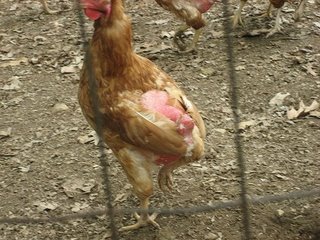Table of Contents
The ethical implications of our food choices have become a topic of increasing interest in recent years. This reaction is unsurprising, given the complex interplay between vegan diets, food production, animal welfare, human health benefits, and environmental sustainability.
One dietary choice that often provokes passionate discussions about ethics is veganism. In this article, we’ll explore the ethical underpinnings of the vegan diet and consider the perspectives that inform it.
Ethical considerations are important in diet choices because our food systems are interconnected with numerous other aspects of society and the environment. The food we consume can significantly impact our health and the welfare of animals, farmers’ livelihoods, ecosystems’ health, and our planet’s future. Each bite sends a ripple effect through the food system, potentially contributing to either harm or healing.
This article aims to examine the ethical arguments for a vegan diet. We’ll explore animal rights and welfare, consider the concept of speciesism, and assess the implications of these moral arguments. Understanding these factors will allow us to make more informed and conscientious decisions about our dietary choices.
The Ethical Basis of Veganism
Veganism is more than a dietary choice; it’s a philosophy grounded in various ethical beliefs. Central to these is the consideration of animal rights and welfare and a rejection of speciesism, a form of discrimination based on species membership.
Animal Rights and Welfare

Veganism’s first and perhaps most straightforward ethical basis relates to animal rights and welfare. Ethical vegans believe that animals, like humans, have rights and that their interests should be considered in our lifestyle choices.
Sentience and Consciousness of Animals
The assertion of animal rights is often grounded in the understanding that many animals are sentient beings capable of experiencing pain and pleasure.
Scientific studies have proved that many animals possess consciousness, cognitive abilities, and complex emotional lives. This recognition challenges the notion that animals are mere resources for human use and brings into focus ethical questions about our treatment of them.
Suffering Experienced By Animals In The Livestock Industry
Additionally, recognizing animal consciousness invites us to consider the richness and complexity of their lives, including physical, emotional, social, and environmental needs.
Animals, much like humans, engage in social bonds, display empathy, and can suffer from stress and boredom. These insights compel us to reconsider our ethical obligations towards animals, expanding them beyond mere avoidance of physical harm.
Speciesism
Beyond the concern for animal welfare, Ethical vegans often raise objections against speciesism – a belief that human interests should always take precedence over the similar interests of other species.
Definition and Explanation of Speciesism
Speciesism is the assumption of human superiority leading to the exploitation of animals. It is the belief that humans have greater moral rights than non-human animals and that some or all animals are inferior to humans due to their species membership./
Speciesism is rooted in a binary distinction between humans and animals, discounting the spectrum of cognitive and emotional capabilities observed across different species.
In other words, it overlooks that many non-human animals exhibit traits such as self-awareness, empathy, and capacity for suffering, which have traditionally been considered unique to humans.
Comparison to Other Forms of Discrimination
Speciesism is often compared to other forms of discrimination, such as racism and sexism, in that it involves favoring one group (humans) at the expense of others (animals). This comparison highlights the arbitrary nature of such biases, urging a reevaluation of our attitudes toward animals.
Drawing parallels with other forms of discrimination also brings forth the idea of intersectionality. Vegans argue that all forms of oppression, including speciesism, are interconnected, and challenging one form of discrimination requires challenging all.
This intersectional approach strengthens the ethical case for veganism, positioning it as part of a broader movement for justice and equality.
Implications for the Ethical Treatment of Animals
If we reject speciesism, as Ethical vegans argue we should, the implications for our treatment of animals are significant. This perspective requires us to give equal consideration to the interests of all sentient beings.
Consequently, it questions practices that cause harm to animals for human benefit, such as using animals for food, clothing, or entertainment. The rejection of speciesism thus provides a compelling ethical argument for veganism.
The implications of rejecting speciesism extend beyond our dietary habits to influence other areas of our lives. For instance, it prompts us to reconsider our use of animals in scientific research, entertainment, fashion, and pet trade.
In this way, as an antidote to speciesism, veganism represents a radical shift in our relationship with other species, one that respects and acknowledges their intrinsic worth.
The Value of Compassionate Living
Veganism exemplifies compassionate living. It emphasizes empathy and respect for all forms of life. By aligning their lifestyle with these values, they acknowledge the interconnectedness of all beings and the importance of living in harmony with our environment.
This aspect of veganism profoundly manifests ethical living, influencing our dietary choices and overall perspective towards dairy industries.
Reflecting on Historical Attitudes towards Animals
Understanding the history of human-animal relationships also sheds light on why the ethics of veganism is significant. Historically, humans have used animals for labor, dairy industries, clothing, and entertainment without much thought for their welfare.
This instrumental view of living creatures is deeply ingrained in many cultures and societies, leading to normalized practices of cruelty and neglect. Veganism challenges this historical paradigm, promoting a shift towards recognizing and respecting animal autonomy and rights.
Climate Change and the Vegan Diet
The relationship between diet and climate change further bolsters the ethical case for veganism.
Animal agriculture significantly contributes to greenhouse gas emissions, deforestation, and water pollution. Individuals can substantially reduce their carbon footprint and contribute to environmental sustainability by choosing a vegan diet.
This factor is an increasingly important consideration as the world grapples with the ongoing climate crisis. For many, adopting a vegan diet aligns with Ethical vegans’ ethical commitment to protect the environment and promote a sustainable future.
The Impact on Human Health
The vegan diet also has significant implications for human health benefits. A well-planned vegan diet is rich in nutrients, fiber, and antioxidants while being lower in saturated fats and cholesterol.
Numerous studies have shown that a vegan diet can help prevent and manage chronic diseases like heart disease, diabetes, and certain types of cancer. Therefore, veganism can also be seen as an ethical commitment to personal health benefits and well-being.
The Role of Veganism in Global Food Justice
Finally, the ethics of veganism encompass considerations of global food justice. Animal agriculture is resource-intensive, requiring large amounts of feed, water, and land.
By contrast, plant-based diets are more efficient regarding resource use and can contribute to global food security. Some proponents of veganism argue that adopting a plant-based diet is an ethical imperative in a world where food scarcity is a pressing issue for many communities.
While the ethical vegan diet is not a panacea for all global challenges, it represents a powerful tool for individuals to align their actions with their ethical beliefs and to contribute positively to a more sustainable and compassionate world.
Ethical Arguments Supporting Veganism

At the core of vegan ethics lies the principle of nonviolence, or “Ahimsa,”. This principle extends beyond human relationships and encompasses all sentient living creatures.
UNESCO, 2020.
Adopting a vegan diet isn’t solely about refraining from consuming animal products. It’s also about embracing ethical principles that guide our actions and shape our relationships with other beings and the world around us. Let’s delve into some of these critical moral arguments that underpin veganism.
The Principle of Nonviolence
At the core of vegan ethics lies the principle of nonviolence, or “Ahimsa,” as it’s known in ancient Indian philosophy. This principle extends beyond human relationships and encompasses all sentient living creatures.
Ahimsa and Veganism
Ahimsa, a principle rooted in Buddhism, Hinduism, and Jainism, translates to “non-harming” or “non-violence.” Ahimsa encourages respect and compassion towards all living beings, a fundamental veganism tenet.
Ethical vegans strive to live a life that causes the least harm to animals, adopting dietary habits that align with this principle of nonviolence.
Moreover, the principle of Ahimsa encompasses not just physical harm but also psychological and emotional damage. When interpreted in the context of animal rights, this principle can be seen as a call to consider the emotional well-being of animals. Thus, a vegan lifestyle aligned with Ahimsa extends beyond diet, encouraging compassionate and respectful interactions with all life forms.
Reducing Harm to Animals Through Dietary Choices
Nonviolence is applied in a vegan diet by choosing plant-based foods instead of animal-derived products. In doing so, Ethical vegans aim to reduce the harm caused to animals by the livestock industry. This choice rejects intensive farming and animal slaughter practices, minimizing their contribution to animal suffering.
Apart from dietary choices, the principle of nonviolence also influences other lifestyle choices in veganism, such as rejecting animal testing and using animal-derived products in fashion, cosmetics, and entertainment.
By broadening the scope of nonviolence, Ethical vegans strive to make a more considerable impact in reducing animal harm.
Utilitarianism and Animal Suffering
Utilitarianism, a branch of consequentialist ethics, provides another compelling argument for veganism. It suggests that the ethical value of an action lies in its capacity to maximize happiness and minimize suffering.
Maximizing Happiness and Minimizing Suffering
From a practical perspective, actions that reduce suffering and increase happiness are morally right. This ethical theory would favor a vegan diet when applied to our food choices.
By abstaining from animal products, Ethical vegans avoid contributing to the immense suffering caused by industrial livestock farming, thus acting in a way that minimizes overall pain.
Furthermore, this perspective extends to recognizing the environmental benefits of veganism. By choosing a plant-based diet, Ethical vegans contribute less to climate change, deforestation, and water pollution, thereby helping to preserve biodiversity and reduce suffering in the long term.
The Case for Veganism as an Ethical Obligation
Some utilitarian philosophers argue that veganism is a morally permissible choice and an ethical obligation.
Given the availability of plant-based alternatives that provide all the necessary nutrients, they suggest that consuming animal products, thereby causing unnecessary animal suffering, is ethically indefensible. This argument presents a strong case for the moral imperative of adopting a vegan diet.
Critics of this view, however, argue that such a stance risks oversimplifying the complexity of food choices, which are often influenced by cultural, socio-economic, and geographical factors. Addressing these counterarguments, vegan advocates emphasize the importance of making gradual and sustainable changes towards a more compassionate diet, respecting the different contexts in which these decisions are made.
Virtue Ethics and Compassion
Finally, the field of virtue ethics offers yet another perspective supporting veganism. Virtue ethics emphasizes the development of good moral character and virtues, such as compassion, over following a set of rules.
Developing Virtues Through Compassionate Choices
According to virtue ethicists, our actions should reflect our virtues, and consistent virtuous actions help us develop a good moral character. In veganism, choosing not to consume animal products can be seen as an expression of compassion, a virtue that many moral philosophies uphold.
In addition, choosing a vegan diet can also be seen as a practice of self-discipline, another essential virtue. By consciously making ethical food choices, Ethical vegans demonstrate a commitment to their values, even when these choices might be challenging or inconvenient. This decision can help cultivate the virtue of resilience and integrity.
Veganism as a Reflection of Moral Character
Vegans argue that their dietary choice reflects their moral character, embodying virtues such as compassion, empathy, and justice. They believe that by showing compassion towards animals and choosing not to partake in their suffering, they are cultivating these virtues in themselves.
Thus, for many, veganism becomes more than just a diet – it becomes a personal commitment to leading a virtuous life.
Moreover, embracing veganism can be seen as an act of responsibility towards future generations. By minimizing the environmental impact of our food choices, we can contribute to a more sustainable world, embodying virtues like foresight and commitment. Therefore, veganism cultivates personal virtues and encourages a collective sense of moral responsibility.
The Ethical Considerations of Food Production
Within veganism, there’s also a strong focus on the ethical considerations surrounding food production.
The large-scale manufacturing processes of the food industry, especially for animal products, often lead to questionable practices concerning animal welfare, worker rights, and environmental sustainability. Individuals can avoid supporting initiatives that may engage in such unethical practices by choosing a vegan diet.
Food Sovereignty and Veganism
Food sovereignty is another aspect that strengthens the ethical foundation of veganism. Food sovereignty advocates for the rights of people to access healthy and culturally appropriate food produced through sustainable methods.
This notion aligns well with veganism, as a plant-based diet can support more sustainable food systems, respecting both the planet and the diverse food cultures across the globe.
Veganism and the Ethics of Consumption of Animal Products
The ethical dimension of consumption is another fundamental aspect of veganism. As consumers, our choices can endorse or challenge the current food system.
Individuals can express their disapproval of animal exploitation, environmental damage, and social injustice linked to producing animal-derived goods by choosing a vegan lifestyle.
This decision aligns with the ethical commitment of Ethical vegans to bring about change through conscious consumption.
The Intersection of Veganism and Human Rights
Veganism’s ethical scope extends to human rights as well. Exploitative labor practices, hazardous working conditions, and inadequate wages are standard in various food industry segments, including animal agriculture.
A commitment to veganism is an indirect stand against these injustices. By opting for plant-based alternatives, individuals can contribute to a food system that is more just and equitable, highlighting the interconnectedness of human and animal rights.
The Philosophy of Interconnectedness
Lastly, veganism embraces the philosophy of interconnectedness – the understanding that all life on earth is deeply interconnected. This worldview reinforces the ethical argument for veganism by highlighting the ripple effect of our choices on animals, humans, and the environment.
Therefore, veganism is about personal moral commitment and contributing to the greater good of the planet and its inhabitants.
Ethical considerations in our dietary choices are gaining importance, and veganism is central to this discussion. But how do these ideas translate into the future of our food systems, societies, and policy frameworks? In the next section, we will explore the prospects of ethical eating and the place of veganism in shaping this future.
Emerging Trends in Food Production of Meat

Plant-based meat uses 72%–99% less water than conventional meat (l-water/kg-meat).
The Good Food Institute. Plant-based meat for a growing world, 2019.
Even traditional meat and dairy companies are starting to invest in plant-based and lab-grown alternatives. They recognize that the future of food may look significantly different from the present, which creates a diverse market where consumers can choose from a wide range of dairy products that suit their ethical, dietary, and taste preferences.
Furthermore, vertical farming, hydroponics, and other innovative agricultural practices may further increase the sustainability of plant-based food production of meat, reducing the environmental footprint of our dairy diets even more.
These trends indicate that the future of food production of meat and -dairy products, could be more ethical, diverse, and innovative.
Plant-Based and Lab-Grown Alternatives to Animal Products
Plant-based foods that mimic animal products’ taste, texture, and nutritional profile have grown remarkably. Brands like Beyond Meat and Impossible Foods have mainstreamed plant-based burgers, while others are developing dairy, eggs, and seafood alternatives.
Alongside this, lab-grown or cultured meat, produced by culturing animal cells without raising and slaughtering farm animals, is on the horizon. Although still in its early stages, this technology has the potential to revolutionize our food system by providing meat without the associated animal welfare concerns.
The Potential for a More Ethical and Sustainable Food System
These developments open exciting possibilities for a more ethical and sustainable food system.
They offer a way to meet the global demand for animal products without the need for large-scale animal farming, reducing animal suffering and our ecological footprint. This change could reshape our food system into one that aligns more closely with the principles of veganism.
Public Awareness and Activism
While celebrities and influencers have played a role in popularizing veganism, there’s also a growing body of academic research exploring the ethics of the consumption of animal products.
This research strengthens the intellectual foundation of veganism and helps to challenge misconceptions about the necessity of animal products in our diets.
Veganism and plant-based eating are also becoming more prevalent in public discourse and media, contributing to a broader cultural shift.
Additionally, education initiatives in schools, community groups, and online platforms are bringing these issues to a more general audience, fostering a new generation more informed about the ethical implications of their food choices.
The Increasing Popularity of Veganism and Plant-Based Diets
Veganism and plant-based diets are gaining popularity, driven by a convergence of ethical, health, and environmental concerns. Celebrity endorsements, social media influencers, and documentaries exposing animal agriculture’s realities have brought veganism into the mainstream, contributing to its rising popularity.
The Role of Advocates in Promoting Ethical Food Choices
Vegan and animal rights advocates are critical in promoting ethical food choices. They raise awareness about the realities of animal farming, challenge societal norms around animal use, and provide resources for those interested in veganism. Their efforts will continue to be central in steering the conversation around ethical eating.
The Role of Policy and Regulation
While celebrities and influencers have played a role in popularizing veganism, there’s also a growing body of academic research exploring the ethics of the consumption of animal products.
This research strengthens the intellectual foundation of veganism and helps to challenge misconceptions about the necessity of animal products in our diets. Veganism and plant-based eating are also becoming more prevalent in public discourse and media, contributing to a broader cultural shift.
Additionally, education initiatives in schools, community groups, and online platforms are bringing these issues to a broader audience, fostering a new generation more informed about the ethical implications of their food choices.
Existing Policies Supporting Animal Welfare
Many countries have policies to protect animal welfare, but these often fall short regarding farm animals used for food.
Regulations often fail to adequately address the welfare of animals during their lives on farms, during transport, or at the time of slaughter. Still, they reflect a societal recognition of our moral obligations towards farm animals, which could serve as a basis for more comprehensive protections.
The Potential for Stronger Regulations to Protect Animals and Consumers
The potential for stronger regulations concerning veganism to protect farm animals and consumers is a critical step toward fostering a more compassionate and sustainable society.
As the demand for plant-based products continues to soar, we must establish comprehensive guidelines and standards to ensure farm animals’ welfare and consumers’ safety. Robust regulations can provide a framework for ethical practices in animal agriculture, preventing the mistreatment and exploitation of farm animals via food production of meat.
By setting clear guidelines on labeling and transparency, consumers can make informed choices and have confidence in the products they purchase. Strong regulations can also safeguard against deceptive marketing practices, ensuring that vegan products are free from animal-derived ingredients and processes.
In conclusion, the potential for stronger regulations concerning veganism holds immense promise in safeguarding the interests of both farm animals and consumers. Embracing this potential will protect the most vulnerable and contribute to a more sustainable and equitable future for all.
FAQ
How does veganism reduce animal suffering?
Veganism reduces animal suffering by rejecting practices such as factory farming, which often involve cramped conditions, cruelty, and unnecessary harm to animals. By choosing plant-based alternatives, individuals contribute to a more humane and compassionate treatment of animals.
What is the concept of speciesism and its relation to veganism?
Speciesism is the belief that one species is superior to others, justifying unequal treatment. Veganism challenges speciesism by advocating equal consideration for all sentient beings, regardless of their species, and rejecting the exploitation of animals for human gain.
Can’t animals be ethically raised and harvested for food?
While some argue for ethical animal farming practices, the reality is that even in well-regulated settings, animals may still face suffering and premature death. Additionally, producing plant-based foods generally requires fewer resources and causes less harm to the environment.







